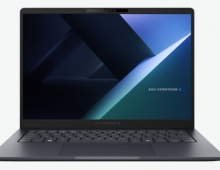
Intel preps speedier Pentium 4
Intel will deliver the last of its speed-fueled Pentium 4 processors later this month.
The chipmaker plans to quietly roll out its 3.8GHz Pentium 4 570 for desktop PCs on Nov. 15, sources familiar with the company's plans indicated.
The chip will offer an extra helping of clock speed for high-end PCs, as Pentium 4 chips are now only available at speeds of up to 3.6GHz. But the 570 will likely be known more for its place in history, because it will, in a sense, represent the end of an era for the chipmaker. Intel focused for years on driving its PC processors' clock speeds higher, but this year it began focusing more on other elements that augment chip performance.
The chipmaker began discussing its efforts to build PC platforms, such as Centrino notebooks and living room PCs; introduced a new naming systems for processors that de-emphasizes clock speed and reflects other chip features; and shuffled its processor road map, canceling the high-speed Tejas chip and shifting its focus to so-called dual-core chips. A dual-core processor packs two processor cores into a single piece of silicon in order to increase performance. Past chips only had one core.
Last month, Intel also canceled its 4GHz Pentium 4, which had been slated for first quarter of 2005. Instead, the chipmaker said it would deliver Pentium 4 chips that derive performance gains from features other than clock speed increases. The first such chips will be Pentium 4s that use 2MB of cache and double the main pool of onboard memory.
The first mainstream Pentium 4 with 2MB of cache will run at 3.8GHz and come out early next year, Intel representatives have said. Previously, only Intel's Pentium 4 Extreme Edition processor, mainly for game PCs, has offered more than 1MB of main cache.
The 3.8GHz 570 chip, like all brand-new processors, is likely to appear in a few high-end desktops at first. Dell, for one, has said it would offer the 570 chip in its Dimension XPS game PC.
"It does show that Intel is continuing progress with speeds," said Dean McCarron, principal analyst at Mercury Research.
But the chip isn't likely to see large sales volumes at first, he said, because it's coming to market fairly late in the game for manufacturers to be able to build it into PCs that will reach store shelves in time for the holidays. Instead, major PC makers are likely to offer it in systems sold directly to customers.
From DigiTimes





















